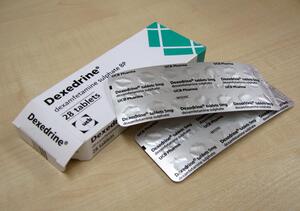What is Dexedrine: How Long Does Dexedrine Stay in Your System?
Cuerpo
Dexedrine, a brand name for dextroamphetamine, has been a cornerstone in the treatment of attention deficit hyperactivity disorder (ADHD) and narcolepsy since its approval in the 1970s. As a central nervous system stimulant, it plays a significant role in managing these conditions, but like any medication, it comes with its own set of benefits, risks, and considerations. As a central nervous system stimulant, Dexedrine offers significant benefits but also requires careful management due to its potential side effects and risk of abuse.
About Dexedrine
Dexedrine, a well-known medication in the realm of stimulant treatments, is primarily used for managing attention deficit hyperactivity disorder (ADHD) and narcolepsy. Dexedrine helps individuals with ADHD by increasing levels of dopamine and norepinephrine, neurotransmitters that play a critical role in attention and impulse control. For those with narcolepsy, it alleviates excessive daytime sleepiness, enhancing the ability to stay awake during the day. It has a high potential for misuse, its sale is regulated and you need a prescription to buy Dexederine online.
What is Dexedrine?
Dexedrine is a prescription-based medication that contains dextroamphetamine, a central nervous system stimulant. It is primarily used to treat attention deficit hyperactivity disorder (ADHD) and narcolepsy, conditions that affect attention, focus, and wakefulness.
Dexedrine Generic
dextroamphetamine, the generic version of Dexedrine, offers the same therapeutic benefits for managing ADHD and narcolepsy as its brand-name counterpart.
Dexedrine Dosage
Proper dosing is crucial to achieve the desired therapeutic effects while minimizing potential side effects.
Dexedrine comes in several strengths. For instance, oral tablets come with these strengths:
Uses of Dexedrine
Dexedrine, which contains dextroamphetamine, is a central nervous system stimulant primarily used to manage two conditions: attention deficit hyperactivity disorder (ADHD) and narcolepsy.
-
Attention Deficit Hyperactivity Disorder (ADHD)
Dexedrine helps individuals with ADHD by increasing levels of dopamine and norepinephrine, neurotransmitters that play a critical role in attention and impulse control. Dexedrine helps manage these symptoms through its stimulant effects.
Improving Focus and Attention:
Dexedrine increases neurotransmitters like dopamine and norepinephrine levels in the brain, which helps enhance concentration and attention. This can lead to better academic, professional, and social performance.
Reducing Hyperactivity:
By regulating brain activity, Dexedrine helps reduce excessive movement and restlessness, allowing individuals to remain calmer and more controlled.
Managing Impulsivity:
The medication aids in improving impulse control, helping individuals think before acting and making more deliberate decisions.
2. Narcolepsy
Narcolepsy is a chronic sleep disorder characterized by excessive daytime sleepiness, sudden sleep attacks, and disrupted nighttime sleep. Dexedrine is used to manage these symptoms and improve overall wakefulness.
Reducing Excessive Daytime Sleepiness:
Dexedrine helps increase alertness and reduce the tendency to fall asleep during the day, improving the ability to stay awake and focused.
Decreasing Cataplexy:
Although not the primary treatment, Dexedrine may provide some benefit in reducing episodes of cataplexy (sudden muscle weakness) that can occur with narcolepsy.
How Long Does Dexedrine Stay in Your System?
The duration that Dexedrine (dextroamphetamine) remains in your system can vary based on several factors, including dosage, formulation, individual metabolism, and overall health. Understanding this can help manage expectations regarding its effects, detectability in drug tests, and the potential impact on your body.
Dexedrine Side Effects
It can be highly effective in managing symptoms, but it also comes with potential side effects. Understanding these side effects can help you monitor your health and discuss any concerns with your healthcare provider.
Common Side Effects
-
Insomnia:
- Description: Difficulty falling or staying asleep.
- Management: Take Dexedrine earlier in the day to avoid interfering with nighttime sleep. Discuss with your healthcare provider if insomnia persists.
-
Appetite Loss:
- Description: Reduced appetite leading to weight loss.
- Management: Monitor your weight and nutritional intake. Eating small and perfect meals may help. Consult your doctor if appetite loss is significant.
-
Dry Mouth:
- Description: A feeling of dryness in the mouth.
- Management: Drink plenty of water and use sugar-free gum or lozenges to stimulate saliva production.
-
Headache:
- Description: Pain or discomfort in the head.
- Management: Over-the-counter pain relievers may help, but consult your healthcare provider if headaches are severe or persistent.
-
Nausea and Vomiting:
- Description: Feeling nauseous or actual vomiting.
- Management: Taking the medication with food might reduce nausea. Discuss persistent symptoms with your healthcare provider.
-
Increased Heart Rate and Blood Pressure:
- Description: Elevated heart rate or blood pressure.
- Management: Regular monitoring of blood pressure and heart rate is important. Inform your healthcare provider of any significant changes.
Less Common but Serious Side Effects
-
Cardiovascular Issues:
- Description: Potential for increased risk of heart problems, including palpitations or chest pain.
- Management: Report any chest pain, rapid heartbeat, or irregular heartbeats to your healthcare provider immediately.
-
Mental Health Effects:
- Description: Anxiety, agitation, mood swings, or exacerbation of pre-existing psychiatric conditions.
- Management: Contact your healthcare provider if you experience severe anxiety, hallucinations, or mood changes.
-
Severe Allergic Reactions:
- Description: Rash, itching, swelling, severe dizziness, or trouble breathing.
- Management: Seek immediate medical attention if you experience signs of a serious allergic reaction.
-
Circulatory Issues:
- Description: Symptoms like cold fingers or toes, pain, or color changes in extremities.
- Management: Inform your healthcare provider if you notice unusual changes in circulation or skin color.












Comentarios